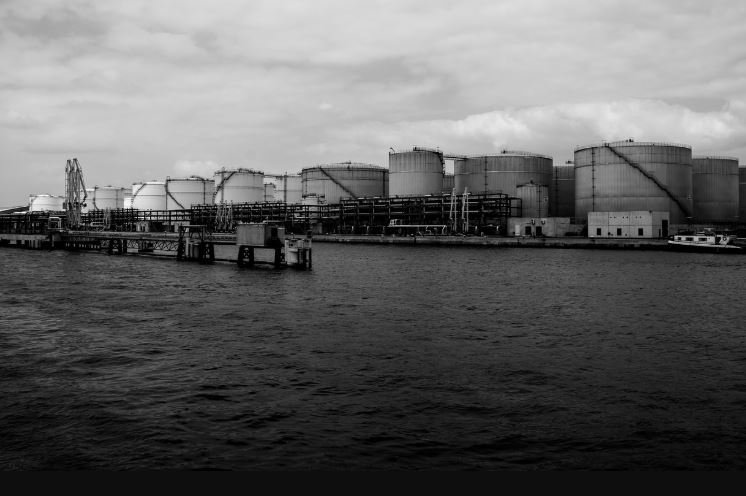Nigeria’s oil and gas sector remains essential to its economy, with strong growth expected in 2025. As Africa’s top crude producer, Nigeria is set to push the continent’s oil output to 3.39 million barrels per day (bpd) alongside Angola.
In January 2025, its crude production hit 1.539 million bpd, exceeding its OPEC quota and showing a sharp rise from previous months. The target for 2025 is 2.06 million bpd, including condensates. However, challenges like oil theft and infrastructure problems continue to pose threats.
READ ALSO: 10 Highest Oil-Producing States In Nigeria
Which Is The Biggest Oil Company In Nigeria?
Here are the top 10 largest oil companies in Nigeria:
- Nigerian National Petroleum Corporation (NNPC)
- Shell Nigeria
- Chevron Corporation
- ExxonMobil Nigeria
- TotalEnergies SE
- Ardova PLC
- Midwestern Oil & Gas Company
- Oando PLC
- Lekoil Nigeria Limited
- Addax Petroleum
1. Nigerian National Petroleum Corporation (NNPC)
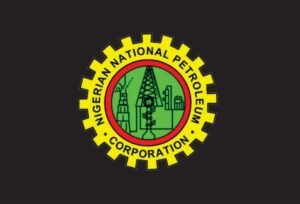
The Nigerian National Petroleum Corporation (NNPC), founded in 1977, has been central to Nigeria’s oil and gas industry. In July 2022, it transitioned into NNPC Limited under the Petroleum Industry Act (PIA) of 2021.
Oil exploration in Nigeria began with the discovery in Oloibiri, Bayelsa State, in 1956, leading to the creation of the Nigerian National Oil Corporation (NNOC) in 1971. This later merged with the Ministry of Petroleum and Energy Resources to form NNPC.
Nigeria joined OPEC in 1971, establishing itself in the global oil market. NNPC operates in oil exploration and production through joint ventures with Shell, Chevron, ExxonMobil, and TotalEnergies, producing about 1.8 million barrels per day. It also manages three refineries in Port Harcourt, Warri, and Kaduna.
Since its transformation into NNPC Limited, the company has expanded refining projects, invested in green energy, and prepared for an IPO to access global capital.
With an asset valuation of $153 billion, headquarters in Abuja, and an international office in London, NNPC is Africa’s largest national oil company. In 2023, its revenue hit N6.1 trillion (USD 13.5 billion), contributing to nearly 70% of Nigeria’s export earnings.
2. Shell Nigeria
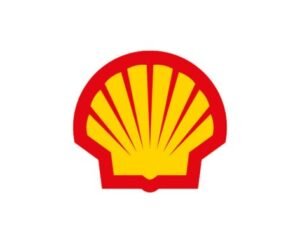
Shell Nigeria, a subsidiary of Shell plc, has played a major part in Nigeria’s oil and gas industry since its establishment in 1936 as Shell D’Arcy. It is one of the largest international oil companies in the country.
Through its key subsidiary, Shell Petroleum Development Company of Nigeria Limited (SPDC), it operates the largest private-sector oil and gas business in Nigeria.
Shell discovered Nigeria’s first commercial oil field at Oloibiri in 1956 and began exports by 1958. In 1989, it co-founded Nigeria Liquefied Natural Gas (NLNG), holding a 25.6% stake. By 1993, it had launched Shell Nigeria Exploration and Production Company (SNEPCO) to tap into deep-water oil and gas reserves.
Shell’s operations span onshore, shallow, and deep-water fields, primarily in the Niger Delta. SPDC manages over 6,000 kilometers of pipelines, 87 flow stations, eight natural gas plants, and more than 1,000 wells.
SNEPCO leads deep-water exploration, working in depths of up to 2,500 meters. Shell has also been involved in gas production for over 40 years, with NLNG processing 22 million tonnes of liquefied natural gas annually, accounting for around 7% of the global LNG supply.
Shell Energy Nigeria supplies natural gas to domestic industries and powers over 200,000 residents on Bonny Island. However, its operations have drawn criticism over oil spills, with over 491,627 barrels lost between 1998 and 2009 due to sabotage and operational failures.
Since 2011, it has published Joint Investigation Visit reports to improve transparency and offer compensation for non-sabotage spills. In recent years, Shell has focused on offshore exploration and contributes about 21% of Nigeria’s petroleum production.
3. Chevron Corporation
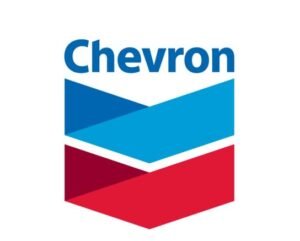
Chevron Corporation, through its subsidiary Chevron Nigeria Limited, is a major oil producer in Nigeria. Its presence dates back to 1913 when Texaco products entered the market.
Over the years, Chevron expanded through mergers, including its 2001 acquisition of Texaco, which integrated Nigerian assets into its portfolio.
Chevron began operations in Nigeria in 1963, drilling near the Escravos River and discovering the Okan Field, estimated to contain 2 billion barrels of oil. It operates under a joint venture with the Nigerian National Petroleum Corporation (NNPC), holding a 40% interest in several concessions across the Niger Delta.
Chevron is the third-largest oil producer in Nigeria, with major projects like the Agbami Field, discovered in 1998, which holds an estimated 900 million barrels of recoverable crude and natural gas liquids.
The company also has a stake in the Usan Field. Chevron exited Nigeria’s downstream sector in 2008 to focus on upstream operations. It invests over $3 billion annually in Nigerian oil and gas development.
In 2011, its production averaged 516,000 barrels per day, with a net of 232,000 barrels. Chevron also produced 343 million cubic feet of natural gas daily.
Aside from oil, Chevron is involved in community development. Through its joint venture with NNPC, it has invested over $118 million in education, healthcare, and infrastructure.
READ ALSO: When Did Nigeria Gain Independence From British Colonial Rule?
4. ExxonMobil Nigeria
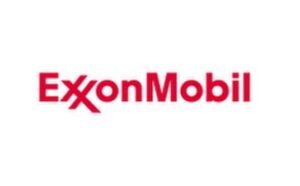
ExxonMobil Nigeria, a subsidiary of ExxonMobil Corporation, is among the largest oil producers in Nigeria. Established in 1955 through Mobil Producing Nigeria, it operates primarily offshore and has significantly helped the country’s oil and gas sector.
Managed through affiliates like Mobil Producing Nigeria Unlimited and Esso Exploration and Production Nigeria Limited, the company is a major industry player despite recent downsizing.
Over the years, it has achieved key milestones, from its first offshore oil discovery in 1964 to pioneering Nigerian-made pipes in offshore operations in 2010.
In 2024, ExxonMobil sold its shallow-water assets to Seplat Energy for $1.28 billion to begin a change to deepwater projects like Erha, Usan, and Bonga.
The Erha Field alone produces around 150,000 barrels per day, contributing to ExxonMobil’s position as Nigeria’s second-largest crude oil producer, with total offshore output reaching 400,000 barrels daily.
ExxonMobil also engages in natural gas liquids projects such as Oso Natural Gas Liquids and East Area Additional Oil Recovery. However, challenges persist, including oil theft, regulatory delays, and security risks in the Niger Delta.
5. TotalEnergies SE
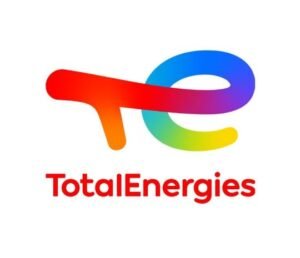
TotalEnergies SE has been instrumental in Nigeria’s oil and gas industry for over 60 years. Its journey began in 1956 with downstream operations and expanded into upstream activities in 1962 through SAFRAP, later Elf Petroleum.
Today, it operates across the entire value chain, leading both upstream and downstream sectors. The company opened its first petrol station in Yaba, Lagos, in 1956 and entered oil exploration in 1962. In 2014, it launched West Africa’s first solar-powered service station.
TotalEnergies EP Nigeria Limited manages upstream activities, holding a 40% stake in its joint venture with NNPC, producing oil and gas from onshore and offshore fields, including deepwater assets like Akpo and Egina.
Its downstream arm, TotalEnergies Marketing Nigeria Plc, operates over 540 service stations, two lubricants plants, and multiple depots. The company also holds a 15% stake in Nigeria LNG Limited, which operates six LNG trains on Bonny Island.
In 2023, it stripped its SPDC Joint Venture stake for $860 million. It reaffirmed its long-term presence through projects like Ubeta and Ikike fields.
Producing 219,000 barrels of oil equivalent per day, it employs over 1,800 people and remains one of Nigeria’s largest private energy investors, with future investments exceeding $6 billion.
6. Ardova PLC
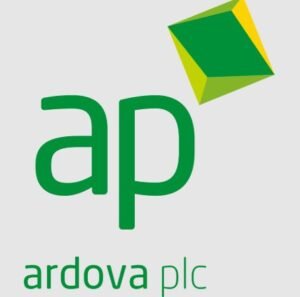
Ardova Plc, formerly Forte Oil Plc, is a top Nigerian energy company in the downstream oil and gas sector. Founded in 1964 as British Petroleum Nigeria Limited, it rebranded to African Petroleum in 1979 and later Forte Oil in 2010 before becoming Ardova in 2020 after a change in ownership.
The company distributes petroleum products, including PMS, diesel, aviation fuel, kerosene, and lubricants, through over 450 retail outlets. It also manufactures lubricants and greases for vehicles and machinery.
Ardova is expanding into renewables with solar and biofuel investments and is developing West Africa’s largest 20,000 MT LPG storage facility. In 2019, Ignite Investments acquired a 74.06% stake.
With headquarters in Victoria Island, Lagos, Ardova operates in Nigeria and Ghana. Key executives include Chairman Abdulwasiu Sowami and CEO Olumide Adeosun.
The company reported ₦96.8 billion in revenue in Q3 2017 and had approximately 168 employees in 2021. It is heavily investing in LPG infrastructure to meet 60% of Nigeria’s domestic demand and positioning itself as a leader in the gas sector.
7. Midwestern Oil & Gas Company
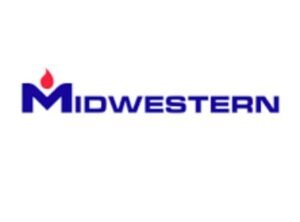
Midwestern Oil & Gas Company Limited is a top indigenous oil and gas firm in Nigeria, specializing in exploration and production. Establshed in 1999, and operations began in 2001.
The company operates the Umusadege Field with a 70% interest and owns OML 18, expanding its asset portfolio. In 2021, it commissioned new facilities, boosting oil processing to 40,000 bopd and gas to 25 mmscf per day.3
Midwestern manages pipeline infrastructure through Umugini Pipeline Infrastructure Limited, overseeing a 51.4 km pipeline linking Umusadege to the Trans-Forcados Pipeline.
The company has a strong safety record, achieving 10 million man-hours of LTI-free operations in 2017. Headquartered in Lekki Phase 1, Lagos, it employs between 51 and 200 people, prioritizing local expertise.
READ ALSO: List Of ECOWAS Presidents From 1975 Till Date
8. Oando PLC
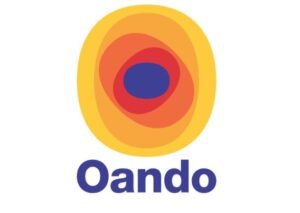
Oando PLC is one of Africa’s largest integrated energy companies, operating in Nigeria and listed on both the Nigerian and Johannesburg Stock Exchanges. It is traced back to 1956 as Esso West Africa, a subsidiary of Exxon Corporation.
In 1976, Nigeria’s Federal Government acquired it, renaming it Unipetrol Nigeria Limited. By 2003, after merging with Agip Nigeria, it became Oando PLC.
Over the years, Oando expanded its portfolio through acquisitions, including a 60% stake in Agip Nigeria in 2002 and ConocoPhillips’ Nigerian assets in 2014 for $1.8 billion. In 2024, it secured full ownership of Eni’s NAOC for $783 million, doubling its joint venture stake to 40% and assuming operatorship.
Operating across upstream, midstream, and downstream sectors, Oando Energy Resources manages oil and gas exploration in the Niger Delta and West Africa, with stakes in 15 licenses.
Its upstream journey began in 2004 with a 42.75% interest in OML 56. The midstream division, formerly Oando Gas & Power and now Axxela, operates gas distribution pipelines, serving over 150 industrial and commercial clients.
In 2011, it commissioned the 128 km EHGC pipeline, delivering 100 million cubic feet of gas daily. Its downstream arm, Oando Marketing, runs over 400 retail outlets across Nigeria, Ghana, and Togo, with 130,000MT tank storage capacity. With a headquarters in Victoria Island, Lagos, Oando generates ₦418.2 million in revenue (2019-Q3) and employs around 300 people.
9. Lekoil Nigeria Limited
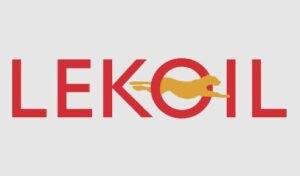
Lekoil Nigeria Limited, a key player in Nigeria’s oil and gas sector, was founded in 2010 by Olalekan Akinyanmi, a former analyst at Alliance Bernstein.
In 2013, it raised $50 million through an AIM listing on the London Stock Exchange and made a major discovery at the Ogo field in OPL 310.
The acquisition of a 40% stake in the Otakikpo Marginal Field in 2014 made its expansion into onshore operations, followed by the 2015 purchase of a 62% economic interest in OPL 325.
Commercial production at Otakikpo began in 2017, with an initial target of 10,000 bopd. Lekoil secured funding from the Qatar Investment Authority in 2020 to advance Ogo’s development and, in 2024, acquired a 45% interest in OPL 276.
The company’s operations span key offshore and onshore assets, including OPL 310, OPL 325, and OML 11. Otakikpo produces around 6,000 bopd.
Through its subsidiary LEKGAS, Lekoil also engages in gas midstream activities to unlock Nigeria’s gas-to-power potential. With a revenue of $44.6 million and $184 million in secured funding, Lekoil is well-positioned for growth.
READ ALSO: 10 Of The Biggest Catholic Churches In Africa By Capacity
10. Seplat Energy
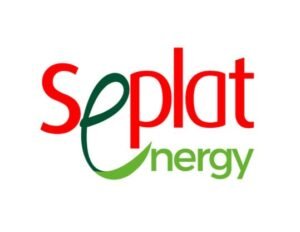
Seplat Energy, formerly Seplat Petroleum Development Company, is Nigeria’s leading indigenous energy firm. Established in June 2009 through a partnership between Shebah Petroleum and Platform Petroleum Joint Ventures, it has grown into a key player in the country’s oil and gas industry.
In 2010, Seplat acquired a 45% interest in OMLs 4, 38, and 41, becoming their operator. By 2012, it was listed on the Nigerian and London Stock Exchanges, raising $500 million in its IPO.
The company expanded its portfolio with acquisitions, including interests in OML 53 and OML 55 from Chevron in 2015 and Eland Oil & Gas in 2019. In 2021, it rebranded to Seplat Energy.
A major milestone was in 2024 with the $1.28 billion acquisition of ExxonMobil’s shallow-water assets. Seplat’s core business lies in upstream oil and gas exploration and production, holding key assets in the Niger Delta, including OMLs 4, 38, 41, 53, and 55.
It also operates gas processing plants at Oben and Sapele. With headquarters in Lagos, it is a major force in Nigeria’s energy sector. Its peak oil production exceeds 85,000 barrels per day, and its gas processing capacity stands at 525 million cubic feet daily.

